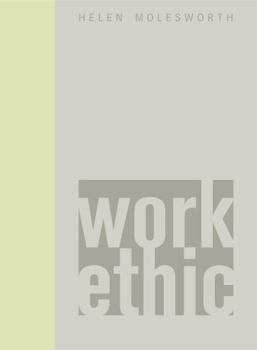Work Ethic
During the 1960s, artists from Alan Kaprow and Yoko Ono to Andy Warhol and Richard Serra stopped making "art" as it has been thought of since the Renaissance. They staged performances that mixed everyday life with theater and in yet other, often ironic, ways challenged the system of marketing, display, and aesthetic discourse that ascribes exceptional monetary as well as cultural value to paintings and sculpture. Work Ethic, published in conjunction with an exhibition of the same name organized by The Baltimore Museum of Art, brings together a cross section of such radical endeavors and opens a fresh perspective on their genesis and meaning. Most of the avant-garde interventions considered in Work Ethic entailed performances and other procedures generally interpreted as linking a "dematerialization" of the object with the free play of concepts.
By contrast, Helen Molesworth and her collaborators in Work Ethic set such activities in the context of the workplace and contend that they engage issues of management, production, and skill that accompanied the emergence of the information age. The result is a major breakthrough in understanding the structures and ambitions of a wide range of art-making. Work Ethic reproduces all the diverse material--Bruce Nauman videotapes to Roxy Paine's painting machine--in the Baltimore exhibition and provides insightful discussion of each piece's history, structure, and significance.
Four essays introduce topics, like utopian fantasies of pleasurable work, that are of general relevance to setting the material into a postindustrial context. Throughout this catalogue, there is as well a lively dialogue on the museum's relationship to art that questions the rules of both the workplace and the art world. The exhibition, "Work Ethic," will be at The Baltimore Museum of Art from October 12, 2003, to January 11, 2004, and at the Des Moines Center for the Arts from May 15 to August 1, 2004.





